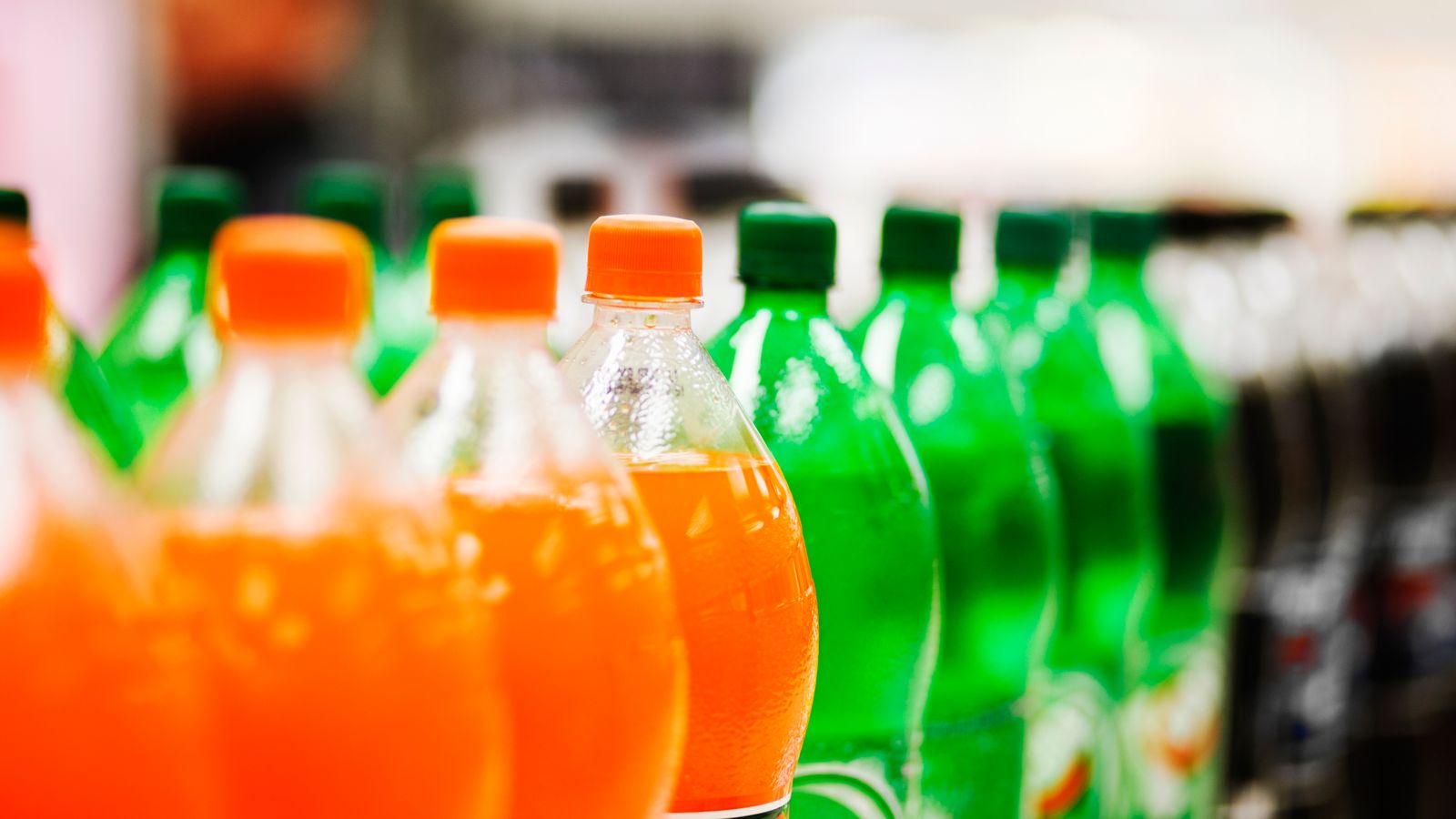UK households bought 10% less sugar through soft drinks in the year after the sugar tax was introduced by the government, new research shows.
Manufacturers of soft drinks containing more than 5g of sugar per 100ml have been made to pay a levy of 18p a litre to the Treasury, or 24p a litre for sugar content over 8g per 100ml, since the tax came into force in April 2018.
The government and health campaigners hoped the higher prices would put consumers off buying the most sugary drinks as part of the fight against obesity.
Some manufacturers reduced the amount of sugar in their drinks, helping them avoid the charges.
Researchers from Cambridge University compared weekly purchasing data in March 2019 with an estimate, based on pre-existing trends, of how purchases would have looked that month if the sugar tax was not in place.
The study showed that the volume of soft drinks bought remained the same but the amount of sugar in those drinks fell by 29.5g – equating to 10% per household per week compared with the estimate.
Dr David Pell, from Cambridge University’s Centre for Diet and Activity Research (Cedar), said: “A 10% drop in the amount of sugar purchased from soft drinks might sound modest, but we know there’s an association between the amount of sugary drinks we consume and the risk of developing conditions such as obesity, type 2 diabetes and high blood pressure.
“Cutting out even a relatively small amount of sugar should have important impacts on the number of people with obesity and diabetes.”
Professor Martin White, also from Cedar, said: “The Soft Drinks Industry Levy appears to have led to a reduction in the amount of sugar that people are purchasing in soft drinks without impacting on the overall volume of soft drinks sold.
He said this was likely due to manufacturers reformulating their products and cutting sugar in their drinks, as well as consumers choosing lower sugar alternatives.
“This represents a valuable win-win for public health and the food industry – potentially improving people’s health with no detrimental effect on the volume of soft drinks that companies are selling,” he added.
Researchers found that sales of high-tier sugary drinks, containing more than 8g of sugar per 100ml, had dropped by 44% per household per week by March 2019.
For sugary drinks containing between 5g and 8g of sugar per 100ml, volumes dropped by 177ml (86%) per household per week, with the amount of sugar falling by 12.5g (an 86% decrease).
Additionally, they found there was no change in the volume of drinks sold with less than 5g of sugar per 100ml, which have no levy, however some of these drinks had increased sugar content.
The data was collected by market research company Kantar Worldpanel – which had asked participating households to record their weekly food and drink purchases.






















